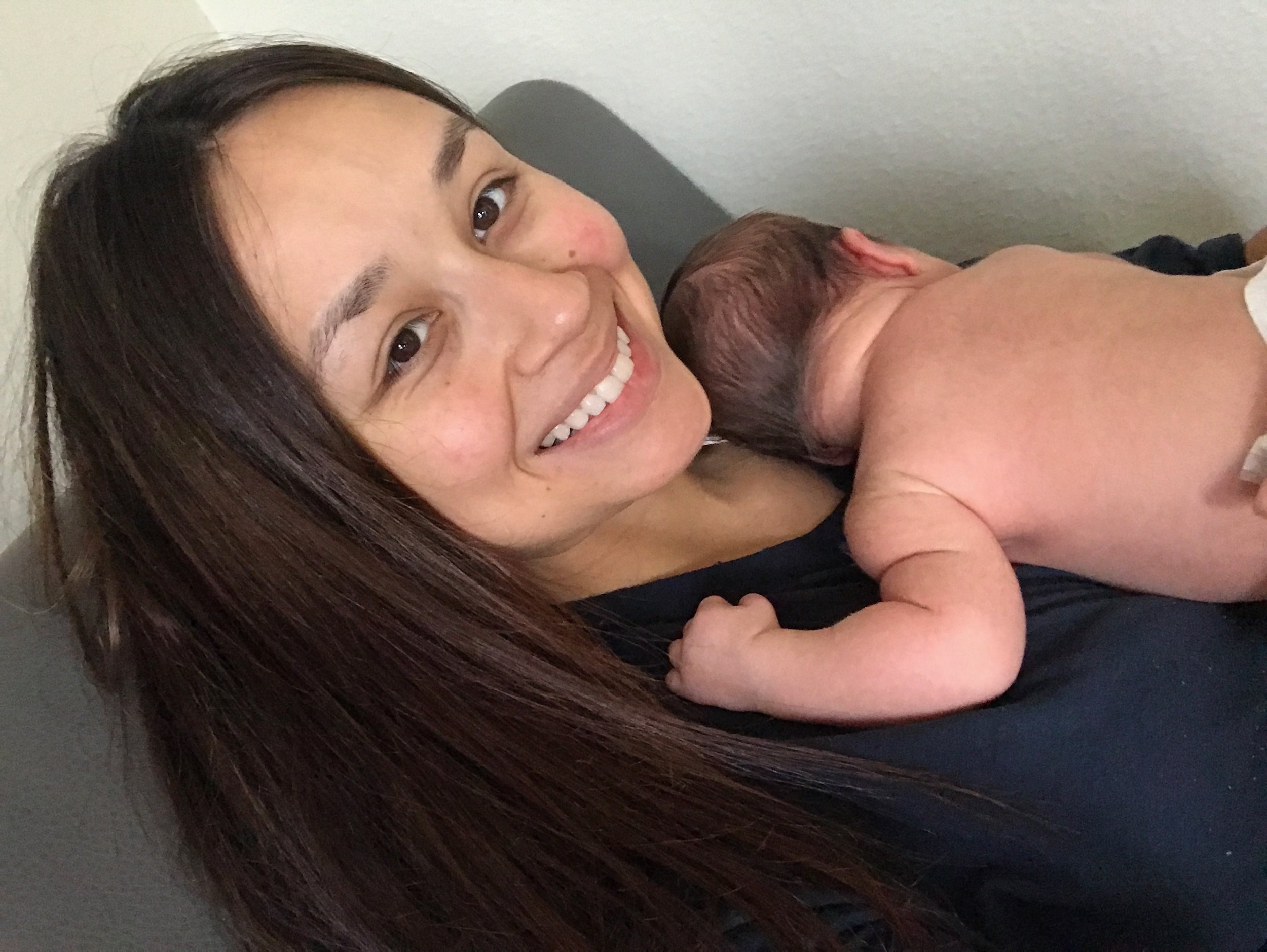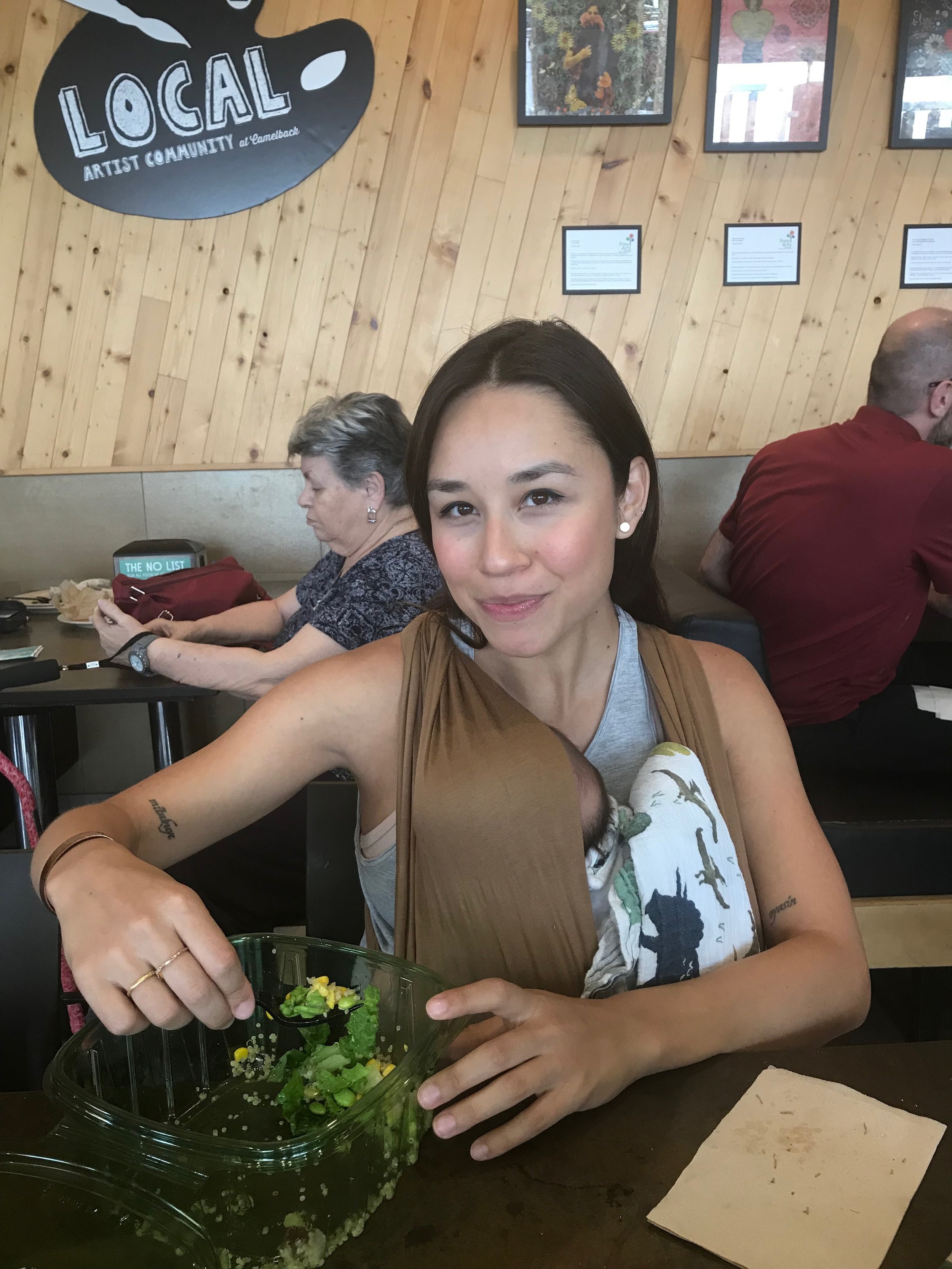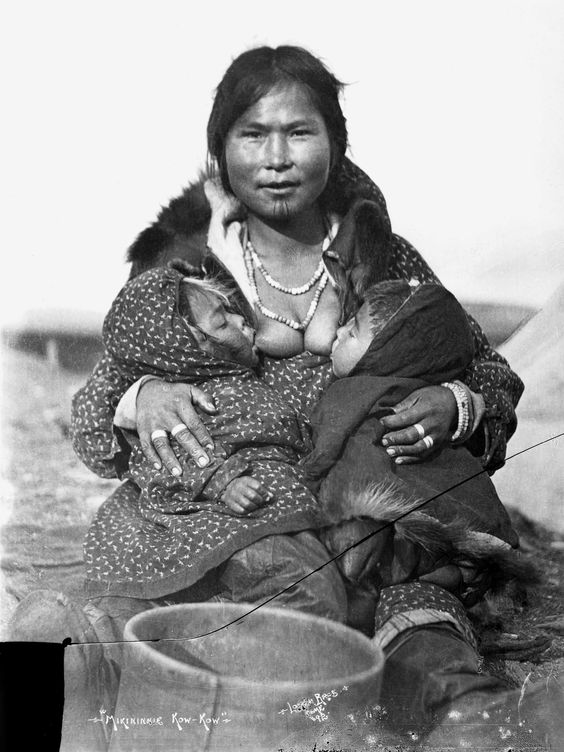It's World Breastfeeding Week - Here's My Story
Not so long ago, I was in my last weeks of pregnancy, visiting with my mom, asking her, "how will I know what to do?" Breastfeeding, we’re told, is as natural a function as there is, but I had only seen one person in my life do it before (my older sister), and the whole process still seemed like a big mystery to me. How would I know when the baby was hungry, how to produce healthy milk, or what time of day feedings should take place? My mom assured me that I would figure it out, and she was right. A year and a half later, I sit here and type this article with one hand as my other arm is half asleep, serving as a headrest to my toddler while she drinks her first meal of the day. I am still breastfeeding, and I consider my ability to do so an invaluable healthcare gift for my family. Not only has it kept my baby fed, it has kept her emotionally nourished, completely free from fevers, ear infections, and digestive issues, and has set the stage for a lifetime of positive health outcomes. While it hasn't always been easy or fun, it has kept me free from postpartum depression and has lowered my risk for cancer. No medicines, pharmaceuticals, or formulas could have provided these results.
As moms, we all have our moments of glory and pride, we all have our struggles, we all have those pieces of pregnancy, childbirth, and childrearing that go extraordinarily well or that are especially challenging. But most of it falls somewhere in between, in this big grey area of simultaneous elation and frustration. In my case, I had an uncomplicated pregnancy followed by a traumatic emergency c-section birth followed by a fulfilling experience with nursing. We all deserve recognition for being the best possible parents to our unique little babies in our own special circumstances. No one but us could understand what we go through. It is never anyone's place to judge, make assumptions, diagnose, dictate, or tell a woman what she should do with her body.
I have become a staunch advocate for breastfeeding awareness because I find it outrageous that it took becoming a mother for me to realize how important it is. Since it's #WorldBreastfeedingWeek, I want to share some of the most fascinating things I've learned about breastfeeding -- the things that no one ever really talks about, the things that none of my doctors ever explained to me, and the things that more people should be aware of so that we can resolve some glaring healthcare injustices. The way I see it, everyone (parents or not), should be invested in this information, because concern for infant care and pregnant women impacts every element of our future. After digging deep into the latest research over the past year and a half, here's what I've found out:
1. Breastfeeding is so much more than food and nutrition.
This video explains it perfectly. It is *FASCINATING*. Watch it!
2. Efforts to encourage breastfeeding are being actively, aggressively repressed by powerful government and corporate interests
Last year at the UN World Health Assembly, representatives from Ecuador introduced a resolution (based on decades of research) stating that breastfeeding is the healthiest option for infants, and so countries should commit to limiting misleading marketing of breast milk substitutes. That's not really a big ask -- pretty much a no-brainer. Nearly every country in attendance was ready to sign on. Then the Trump administration stepped in. In line with the interests of corporations who make formula, who have seen their profits plummet in recent years thanks to a resurgence in breastfeeding in the western world, the the U.S. went so far as to threaten withdrawal of military support for Ecuador if they were to move forward with the resolution. In short, we live in a world where corporate interests are attempting to interfere with a mother's right to be educated on the best healthcare choices for her and her baby, all in the name of profit margins. Read more about it here and here.
3. Doctors are not always up to date on the latest breastfeeding research
I am fortunate to have been supported by my partner, my family, my friends, coworkers and others throughout my time breastfeeding -- a luxury not all moms are afforded. However, I have also experienced some majorly upsetting moments where my ability and choice to breastfed my daughter has been put at risk and criticized, ranging from sneers and nasty stares in public to bad advice from medical professionals. (Keep in mind that I take my baby for checkups at a medical center that boasts a "breastfeeding friendly" certification.)
During our well baby checkups, several doctors have told me to stop breastfeeding in part or in total for arbitrary reasons. One doctor went so far as to suggest I cut my daughter off cold turkey because she is 'too old and too big' (when she was 9 months old) and suggested I replace breastmilk with rice cereal. Any mom who has breastfed can tell you how traumatic it would be to cut off a baby cold turkey from her milk supply. Furthermore, we know that the hormones in breastmilk prevent overeating, we know that breastfeeding is one of the most reliable measures to prevent childhood obesity, we know that baby fat is good for brain development, we know that the World Health Organization recommends breastfeeding up to 5 years. We know that baby rice cereal can cause digestive issues, is high in arsenic and low in nutritional value, and does not contain any of the immunological or hormonal benefits of breastfeeding. We know all of this and yet, my doctors knew none of it. I would argue that the advice of these doctors gave me borders on medical malpractice. Thankfully I was up to date on the research and knew better. I will continue to breastfeed my baby until she decides it's time to stop. Nonetheless, this bad advice and criticism from doctors left me feeling uncomfortable, unsettled, and worried — which led me to do further research on my own.
4. Breastfeeding advocacy is sometimes misinterpreted as formula shaming
There is a movement called "fed is best" which fights against the phrase #BreastIsBest because some view breastfeeding advocacy as a means of shaming formula fed babies. While I'm sure there are individuals who have shamed formula feeding and I agree that that is totally wrong and not cool (I was a formula fed baby and would never change a thing about the way my mom parented me), let me be clear: breastfeeding advocacy is not meant to put down mothers who formula feed. It is meant to save lives, prevent illness, and empower mothers to make the choices they want to make. We cannot forget that breastfeeding advocacy had to begin for a reason, as a response to oppression. We live in a world where breastfeeding moms are shamed for feeding in public, meanwhile women's breasts are hypersexualized in other contexts and used in every form of advertising. We live in a world where corporations are using their influence to suppress breastfeeding knowledge. We live in a world where it is impossible for nearly every mother to both work and feed her baby how she wants to. Perhaps most pressing, there are millions of women around the world who are themselves undernourished and have the right to know that breastfeeding, even while undernourished, will still nourish and keep their baby alive. There are also millions of families around the world who do not have access to clean drinking water, including many Indigenous communities whose water supplies are threatened and degraded due to environmental injustices and extraction of natural resources. Breastfeeding can save lives in places where babies could become sick and die from formula mixed with unclean water.
The New York Times has said this:
"A 2016 study in The Lancet found that universal breast-feeding would prevent 800,000 child deaths a year across the globe and yield $300 billion in savings from reduced health care costs and improved economic outcomes for those reared on breast milk."
Let those numbers speak for themselves, and remember that breastfeeding advocacy is not meant to shame moms who formula feed, it is meant to empower all moms around the world.
5. Breastfeeding, breast milk and lactation are severely under studied
Everybody - stop what you're doing and watch this fascinating TED talk by one of the world’s foremost lactation researchers, Dr. Katie Hinde of ASU.
Dr. Hinde points out that there are fewer scientific studies and data sets available on breastfeeding than there are on things like wine, tomatoes, and erectile dysfunction. Yep. The patriarchy is alive and well.
*******
I think about my ancestors, for whom breastfeeding was an integral way of life, who set up societal structures that supported women and babies so that they could share breastfeeding duties while continuing to work and socialize together in a healthy way, for as long as the baby needed. We know that it is possible to get to this place because it has happened before. This life-giving process has sustained human existence for millennia, and it is a tradition to be continued, respected, and supported.
With that, I encourage you all to continue to advocate for breastfeeding research, to learn more about breastfeeding, to support those who want to breastfeed their babies, and to care more about women, infants, and children, because it will undoubtedly impact your life and our collective global future.





